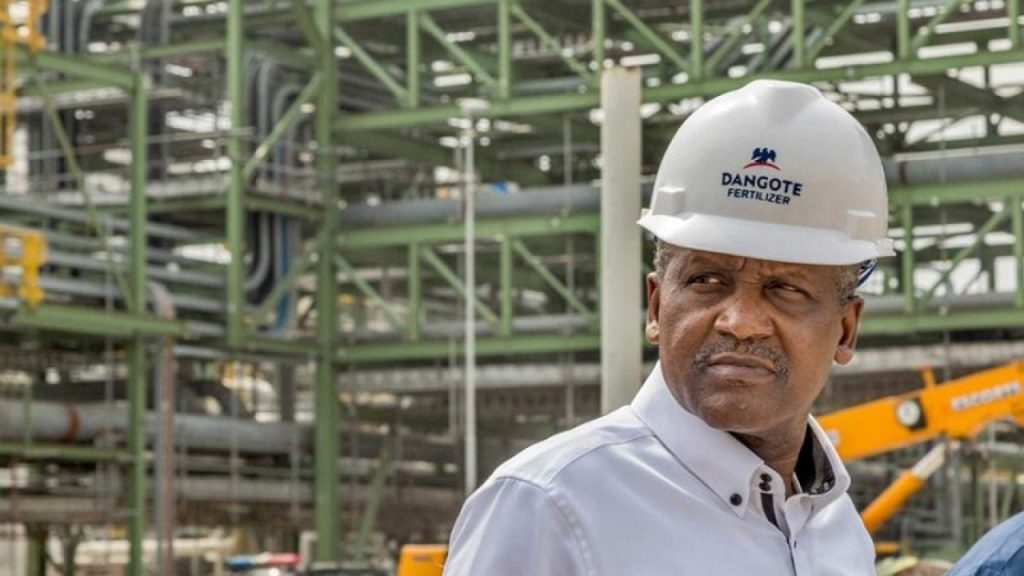The Dangote Petroleum Refinery, a monumental $20 billion facility located in Lekki, Nigeria, is experiencing a significant surge in production, necessitating a strategic shift in its crude oil sourcing strategy. Initially reliant on the Nigerian National Petroleum Company Limited (NNPC) for its feedstock, the refinery is now actively pursuing crude oil imports to sustain its escalating output. Having achieved a production capacity of 500,000 barrels per day (bpd), the refinery aims to reach its full capacity of 650,000 bpd by mid-2024. This ambitious target, coupled with the NNPC’s existing commitments to other local refineries and the nation’s fuel consumption needs, has created a supply gap that necessitates exploring alternative crude oil acquisition avenues.
While the naira-for-crude deal, a government initiative designed to bolster local refineries by allowing them to purchase crude oil in local currency, remains in effect, the sheer volume of crude required by the Dangote Refinery surpasses the NNPC’s current capacity. The 450,000 bpd allocated for domestic consumption is insufficient to meet the demands of all operational refineries, including the Dangote facility. Thus, the decision to import crude is not a reflection of the NNPC’s inability to supply, but rather a pragmatic response to the refinery’s substantial operational scale. As the refinery ramps up production toward its maximum capacity, the demand for crude will further intensify, making international sourcing a necessary component of its long-term operational strategy.
This move towards international crude sourcing places the Dangote Refinery among the “big boys” in the global refining landscape. With a 650,000 bpd capacity, it rivals the largest refineries worldwide and positions Nigeria as a significant player in the international petroleum market. The refinery’s output, notably its production of Euro 5 standard petrol, has already made a noticeable impact, influencing fuel quality and consumption patterns within Nigeria and even rippling into European markets, according to OPEC reports. This emergence signifies a shift in the global refining dynamics and underscores the refinery’s growing influence on both domestic and international markets.
The increasing refining capacity within Nigeria has created a scenario where the previously allocated 450,000 bpd of crude oil for local refineries is no longer adequate. The Nigerian Upstream Petroleum Regulatory Commission (NUPRC) projects a total requirement of 770,500 bpd for the Dangote Refinery, the Port Harcourt refinery, and six other operational facilities. This figure, based on data from the Nigerian Midstream and Downstream Petroleum Regulatory Authority, highlights the significant increase in domestic refining capacity, totaling 974,500 bpd. The growth necessitates a strategic reassessment of crude allocation and underscores the importance of diversification in sourcing strategies to meet the growing demands of the refining sector.
The naira-for-crude initiative, launched by President Bola Tinubu in 2023, was initially piloted with the Dangote Refinery, allowing it to purchase crude oil in naira at a fixed exchange rate. The program aims to bolster domestic refining capacity and reduce reliance on foreign exchange for crude purchases. However, with other refineries, such as the Port Harcourt and Warri refineries, coming back online, the scheme is expected to expand, potentially including other petrol-producing refineries. The NUPRC projects that eight refineries will require a combined 123.5 million barrels of crude in the first half of 2025, demonstrating the growing need for domestically sourced crude. This expansion presents both opportunities and challenges, requiring careful management of resources and equitable distribution of crude oil among participating refineries.
In anticipation of increased reliance on imported crude, the Dangote Refinery is proactively expanding its storage capacity. The construction of eight additional tanks, each capable of holding a substantial volume of crude, will increase the refinery’s total storage capacity by 41.67% to 3.4 billion liters. This strategic move is a direct response to the limitations of local crude supply and reinforces the refinery’s commitment to securing a consistent and reliable feedstock for its operations. While the NNPC is expected to continue supplying crude to the Dangote Refinery under the naira-for-crude arrangement, the volume supplied falls short of the refinery’s rapidly escalating needs. This gap underscores the importance of the ongoing storage expansion and the pursuit of diversified crude sourcing through imports. As Nigeria works to ramp up its own crude production, the ability to supplement domestic supply with imports will be crucial for sustaining the operations of its expanding refining sector. This dual approach will ensure both fuel security and the continued growth of the downstream petroleum industry.


